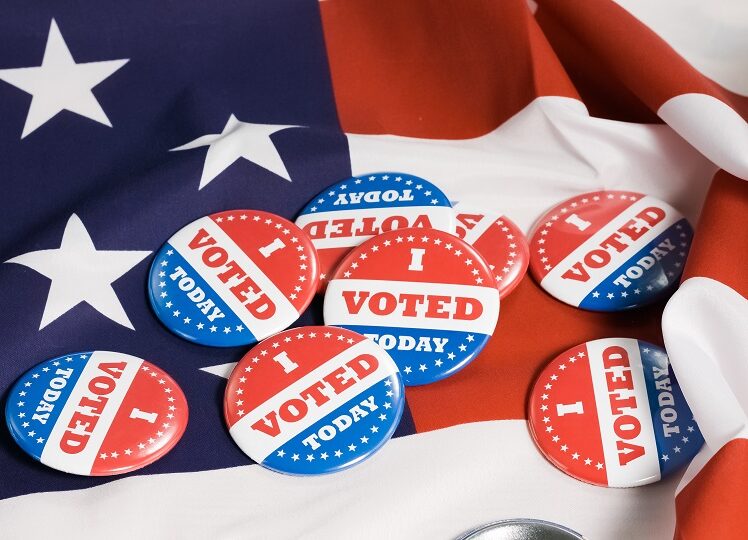What can the Elections change?
As 2024 nears its final stretch, efforts to expand or restrict gaming across the United States have largely resulted in a stalemate, marking the year as one of limited progress for the industry. State governments that aimed to introduce new gaming legislation have seen their ambitions largely frustrated, while attempts to impose new restrictions on online gaming have also gained little traction. As a result, the gaming landscape has remained mostly static, with the upcoming November elections holding the potential to shape the industry's future in 2025 and beyond.
The election outcomes in several states will be critical in determining the trajectory of gaming legislation in the coming years. Four states are set to elect new governors, and the results of these races could play a pivotal role in either advancing or stalling potential expansions of gambling activities. Moreover, shifts in state legislatures could also influence the likelihood of new gaming laws being introduced or existing ones being repealed.
Key Points
Arkansas presents a particularly contentious case, where voters may once again cast ballots on a casino issue that has remained unresolved since 2018. While three of the four casinos authorized by a constitutional amendment six years ago are operational, litigation has prevented the establishment of the fourth in Pope County. The upcoming vote could see Pope County removed from the list of authorized locations, but a legal challenge may render the referendum moot if the state’s Supreme Court invalidates the votes. Should the amendment survive legal scrutiny and be approved, it would make future casino expansions more challenging by requiring county-specific referendums for new proposals.
Meanwhile, Georgia’s legislative races are drawing attention from gambling industry stakeholders, although the outlook for significant change remains dim. Despite repeated attempts to expand gambling in recent years, the state has seen little success, and the May primaries did not indicate a shift in the political landscape. With Republicans maintaining a strong presence in both legislative chambers, the prospects for gambling expansion—particularly for online casinos—remain uncertain, as divisions within the party persist.
In Indiana, the gubernatorial race between U.S. Sen. Mike Braun and Democratic candidate Jennifer McCormick has not focused heavily on gaming, though both candidates appear open to the possibility of expansion. The real question is whether the state legislature, which has grown wary of gaming expansion following a corruption scandal in 2019, will revisit the issue during the next governor’s term. Any progress in Indiana is likely to depend on how quickly memories of past controversies fade.
Missouri is poised to be one of the most significant battlegrounds for gaming in the 2024 elections. Voters will not only elect a new governor and legislature but also decide on a new casino at the Lake of the Ozarks and a potentially transformative referendum on online gambling. Internal divisions within the Republican Party have previously stalled gaming expansion efforts in the state, and the outcome of November’s elections could determine which faction gains the upper hand. Even if voters approve the sports betting referendum, enabling legislation will still be necessary, and there is no guarantee that the state’s Republican supermajority will act swiftly to implement the will of the voters.
In New York, key proponents of gaming legislation, such as Sen. Joseph Addabbo and Assembly member Gary Pretlow, are expected to retain their seats, yet this continuity does not necessarily mean progress. The state’s focus remains on physical casino matters, including the licensing of downstate casinos and the renegotiation of the Seneca Nation’s compact. Until these issues are resolved, significant movement on online casino regulation is unlikely.
Similarly, in Virginia, the fate of a proposed casino in Petersburg rests on a city-specific referendum, following two failed votes on similar measures in Richmond. If approved, Petersburg would host the final casino authorized by 2019 legislation, completing the state’s expansion under that framework.
Finally, the November elections could have implications for state lotteries, particularly in states like New York and Ohio, where key legislative supporters of online lottery legislation are up for re-election. In states like Alabama, Utah, and Nevada, where lotteries are either nonexistent or highly restricted, the elections could set the stage for renewed legislative efforts in the coming years, though any substantial changes would likely be incremental and slow to materialize.
Overall, 2024 has been a year of limited change in the U.S. gaming industry, with many initiatives stalling and few new developments taking hold. As Election Day approaches, the outcomes of several key races could either solidify this period of stagnation or open the door to renewed momentum in 2025 and beyond.








